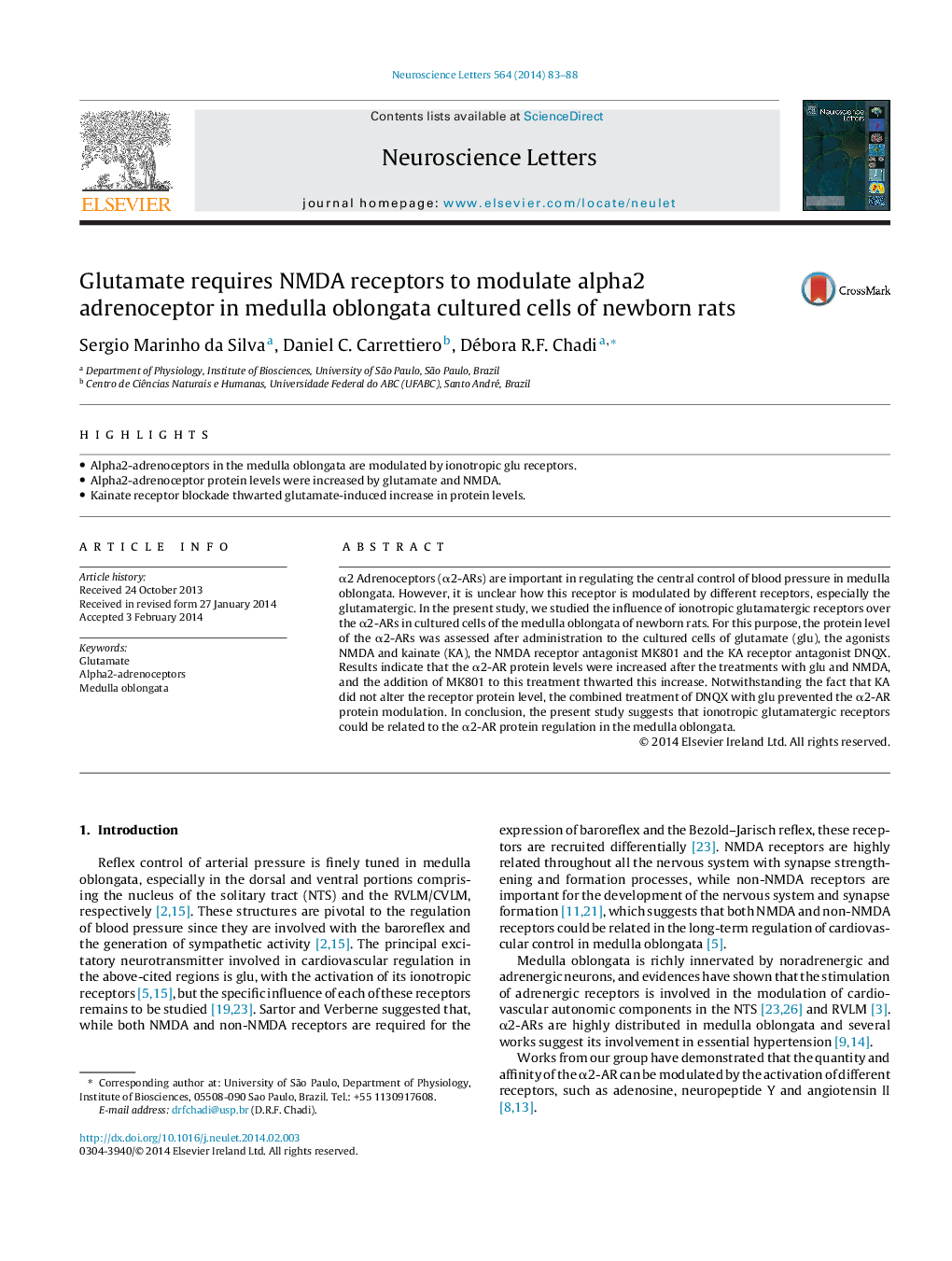| Article ID | Journal | Published Year | Pages | File Type |
|---|---|---|---|---|
| 6282248 | Neuroscience Letters | 2014 | 6 Pages |
â¢Alpha2-adrenoceptors in the medulla oblongata are modulated by ionotropic glu receptors.â¢Alpha2-adrenoceptor protein levels were increased by glutamate and NMDA.â¢Kainate receptor blockade thwarted glutamate-induced increase in protein levels.
α2 Adrenoceptors (α2-ARs) are important in regulating the central control of blood pressure in medulla oblongata. However, it is unclear how this receptor is modulated by different receptors, especially the glutamatergic. In the present study, we studied the influence of ionotropic glutamatergic receptors over the α2-ARs in cultured cells of the medulla oblongata of newborn rats. For this purpose, the protein level of the α2-ARs was assessed after administration to the cultured cells of glutamate (glu), the agonists NMDA and kainate (KA), the NMDA receptor antagonist MK801 and the KA receptor antagonist DNQX. Results indicate that the α2-AR protein levels were increased after the treatments with glu and NMDA, and the addition of MK801 to this treatment thwarted this increase. Notwithstanding the fact that KA did not alter the receptor protein level, the combined treatment of DNQX with glu prevented the α2-AR protein modulation. In conclusion, the present study suggests that ionotropic glutamatergic receptors could be related to the α2-AR protein regulation in the medulla oblongata.
